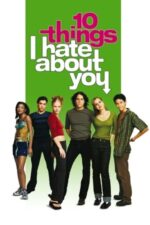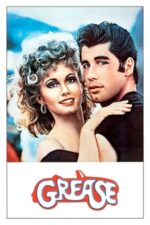The Magnetic Pull: Why We Love Opposites Attract in Film
Isn't it fascinating how often we’re drawn to stories about people who seem utterly incompatible? Like magnets with different poles, they clash and spark, yet somehow find a way to connect. "Opposites attract" isn't just a cheesy Valentine's Day slogan; it's a powerful narrative engine that has fueled some of cinema’s most enduring romances – and comedies!
Think about Grease. Sandy Olsson, all wholesome goodness and Australian innocence, is practically the antithesis of Danny Zuko, leather-clad greaser with a swagger to match. Their initial attraction isn't based on shared interests or values; it's built on a thrilling sense of difference. Watching them navigate the social minefield of Rydell High, each influencing the other (sometimes for better, sometimes… less so!), is pure entertainment. It taps into that universal desire to be challenged and broadened by someone who sees the world differently than we do.
And it’s not just about teenagers! Pillow Talk, with Doris Day and Rock Hudson, perfectly encapsulates this dynamic in a delightfully charming 1950s setting. Brad Allen, the successful songwriter, is a confirmed bachelor, while Jan Morrow fiercely guards her privacy. Their forced proximity – thanks to that shared telephone line – creates hilarious tension, but also allows them to see past their initial judgments and discover something genuinely appealing beneath the surface. It’s a reminder that sometimes, what we initially perceive as annoying or off-putting can actually be incredibly endearing.
Even films like My Fair Lady, which aren't strictly romantic comedies, play with this concept. Professor Higgins, with his rigid intellect and social prejudices, is completely different from Eliza Doolittle, the flower girl he attempts to transform. Their relationship evolves beyond a simple teacher-student dynamic; it becomes a complex exploration of class, identity, and ultimately, mutual respect – fueled by their fundamental differences.
What’s so compelling about these stories? I think it's that they offer us hope. They suggest that connection isn't always about finding someone who mirrors our own beliefs and preferences. Sometimes, the most rewarding relationships are forged when we step outside of our comfort zones and embrace those who challenge us to grow. Elevator Girl, with its confined setting and contrasting personalities, really embodies this – a testament to how unexpected connections can blossom even in the most unusual circumstances.
Ultimately, films that explore "opposites attract" aren't just about romance; they’re about understanding, acceptance, and the beautiful messiness of human connection. They remind us that sometimes, the things that make us different are precisely what bring us together.







































